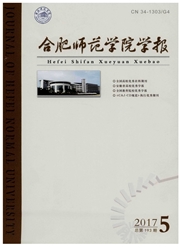
欢迎您!东篱公司
退出

 中文摘要:
中文摘要:
表"骗"义的"脱、赚"分别为"詑、詀正(譧俗)"的记音词。"脱"本体义中的"失去、避开"意象、"赚"本体义中的"获得"意象均和欺骗概念有着客观存在或人们主观臆想的联系。"脱、赚"之"骗"义的产生,演变的主要动因是记音,演变的机制是概念整合,"詑、詀正(譧俗)"的"骗"义被整合进入记音词"脱、赚"的本体义域,演变的结果是"脱、赚"在本体义域的基础上获得了"骗"的新创义。
 英文摘要:
英文摘要:
The deceptive meaning of Tuo(脱) or Zhuan(赚) is the phonogram of Tuo(詑) & Zuan(譧俗)respectively. Tuo(脱) means "to lose, to escape", while Zhuan (赚)means "to obtain" in itself which is to be connected with deceptive concept objectively or subjectively. The generation of deception in Tuo(脱) or Zhuan(赚) is to remember the sound, but the change mechanism is the integration of concept, the result of which is the creation of emergent meaning of deception based on subjective semantic change.
 同期刊论文项目
同期刊论文项目
 同项目期刊论文
同项目期刊论文
 期刊信息
期刊信息
